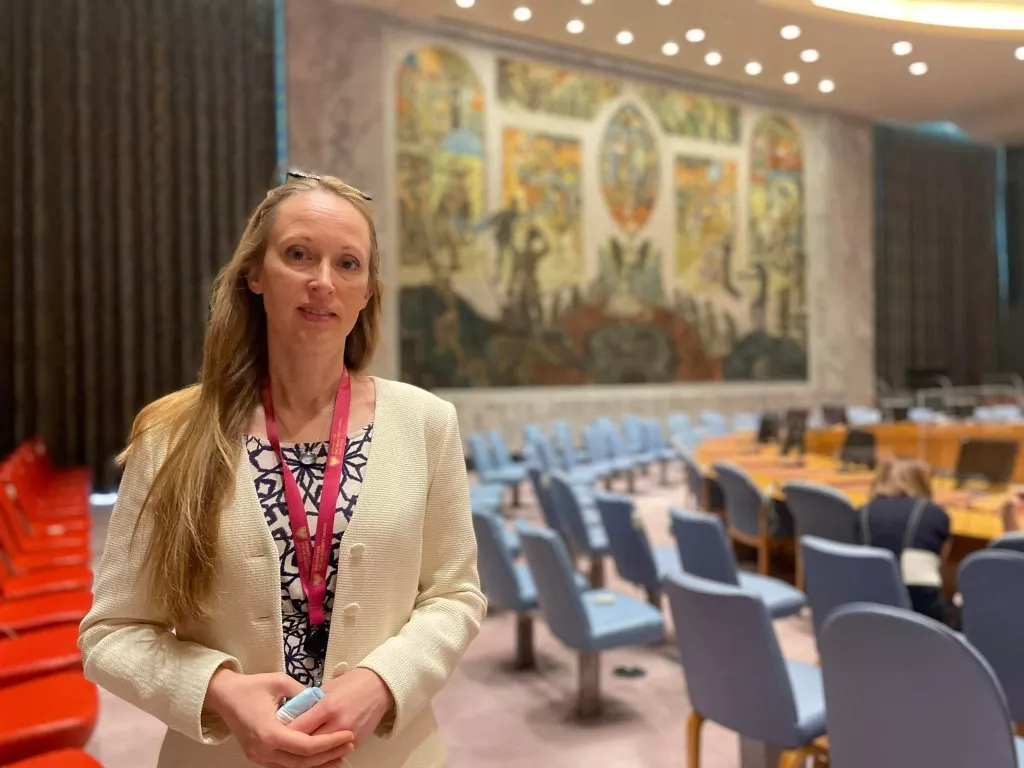Louise Olsson, Research Director and Senior Researcher at PRIO questions the role of the UN Security Council as an anchor for the Women Peace and Security agenda. Olsson asks: while many of us agree that something better than the UNSC is needed in order to promote conflict resolution and to forward norms on women’s rights in matters of peace and security, the questions remain as to what that something should be and how it could be realistically created?

To paraphrase Mark Twain, the reports of the UN Security Council’s death have been greatly exaggerated.
That does not mean to say that the legitimacy crisis is not real nor that the long-term trajectory – escalated by the Russian invasion of Ukraine – might not be terminal. The consequences for states in weaker positions and for the international norm on women, peace and security (WPS), a framework promoted and formalized over decades of harsh fights in the Council, can be detrimental.
As stated by Dag Hammarskjold: “It is not the … big Powers who need the United Nations for their protection. It is all the others.”
We arrived in New York to better understand the crisis of the UN Security Council (UNSC) following Russia’s invasion of Ukraine. That the Russian veto has resulted in a failure to prevent or halt the aggression, a direct breach of the UN Charter, has undoubtedly taken a large toll on the Council’s already weakened legitimacy.
I have met many for which the UNSC, and perhaps even the UN, is considered outdated and obsolete. The inability to handle the Ukraine crisis just constitutes the final nail in the coffin.
But before we consider abandoning the current multilateral institution that is the UN, there are two questions we should answer.
First, what roles do the UN and its Security Council fill for state relations and for the normative framework it has created on women, peace and security?
Many states have larger diplomatic delegations in NY than they have in most countries. Why? Because in the hub that is the UN, a sizable part of many countries’ foreign policies plays out on a daily basis. This means an endless stream of countless negotiations and consultations, something which allows for handling misunderstandings, clarifications of positions, and resolving a range of low-grade conflicts. State relations to a high extent consist of actual meetings between people representing states, rather than only the abstract formal rules or institutions we sometimes depict in lecture halls and public debates.
Those that argue that the UN is just ‘talk’ underestimate the function this has for the majority of state interactions.
In fact, at this core hub, the international norm on WPS has been developed and now integrated into the seamless and endless web of dialogues that constitute state relations; resulting in real possibilities of addressing the serious problems that the norms were created to handle. As demonstrated by Zehra Arat, the UN has constituted a fundamental and successful arena for a multitude of diverse interest groups for forwarding women’s rights over time, including in the context of peace and security through the UNSC resolutions.
WPS and women’s rights are also part of the current debate on Ukraine. A recent example is the UNSC debate on the Maintenance of peace and security of Ukraine with a focus on conflict-related sexual violence (CRSV) and trafficking held on June 6th. It constituted the 23rd meeting held on Ukraine since the invasion. The meetings have been used to bring into the light the many hideous and devastating effects that the invasion has caused, and to maintain pressure on the invading state. At this meeting, the Ukraine Ambassador sat at the table where a war of words was fought, just a few seats down from Russia. A civil society organization took part online from Ukraine, hovering over the room from the screen above the table, expressing views from the conflict area.
To continue reading the essay click here.

